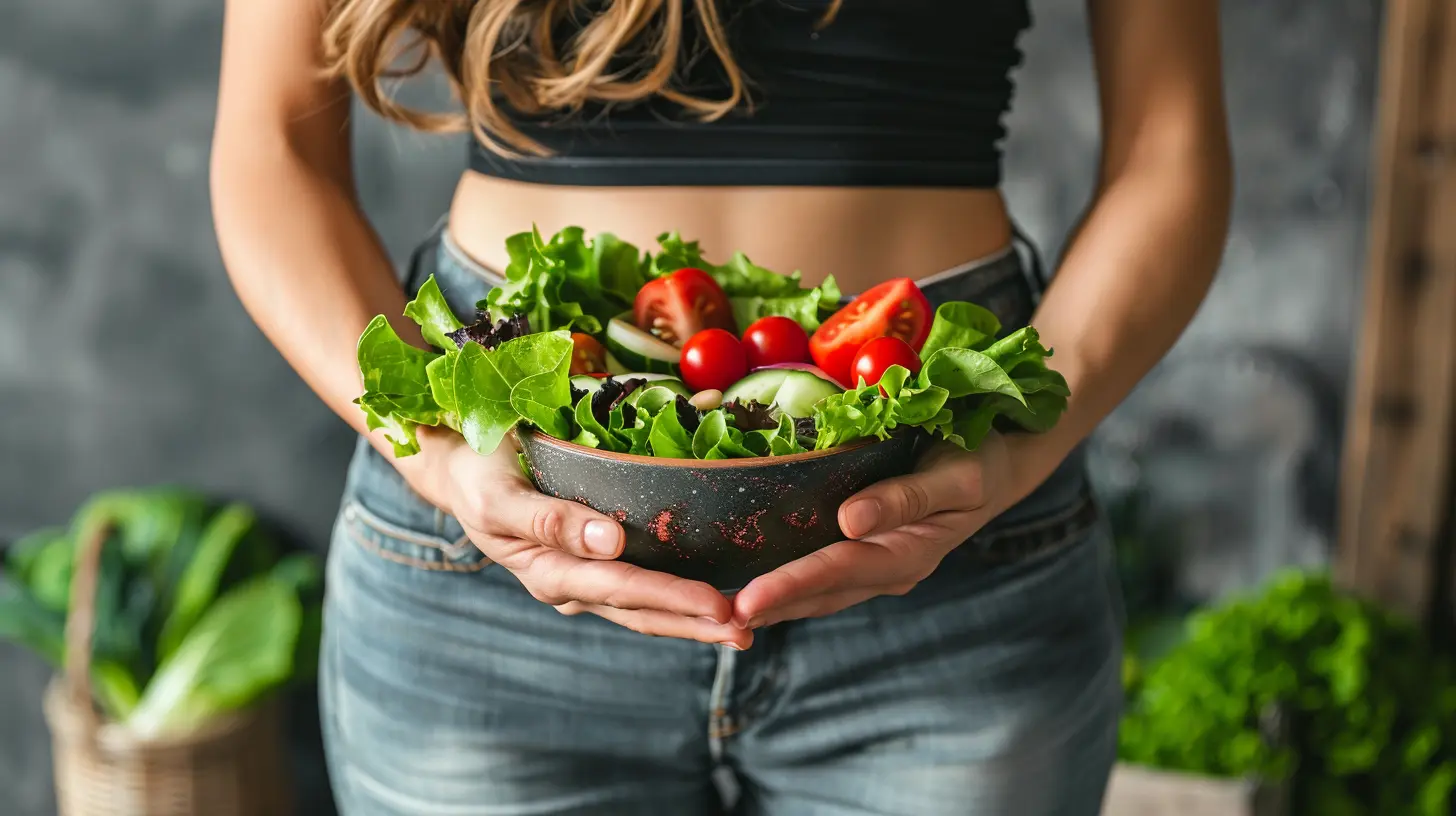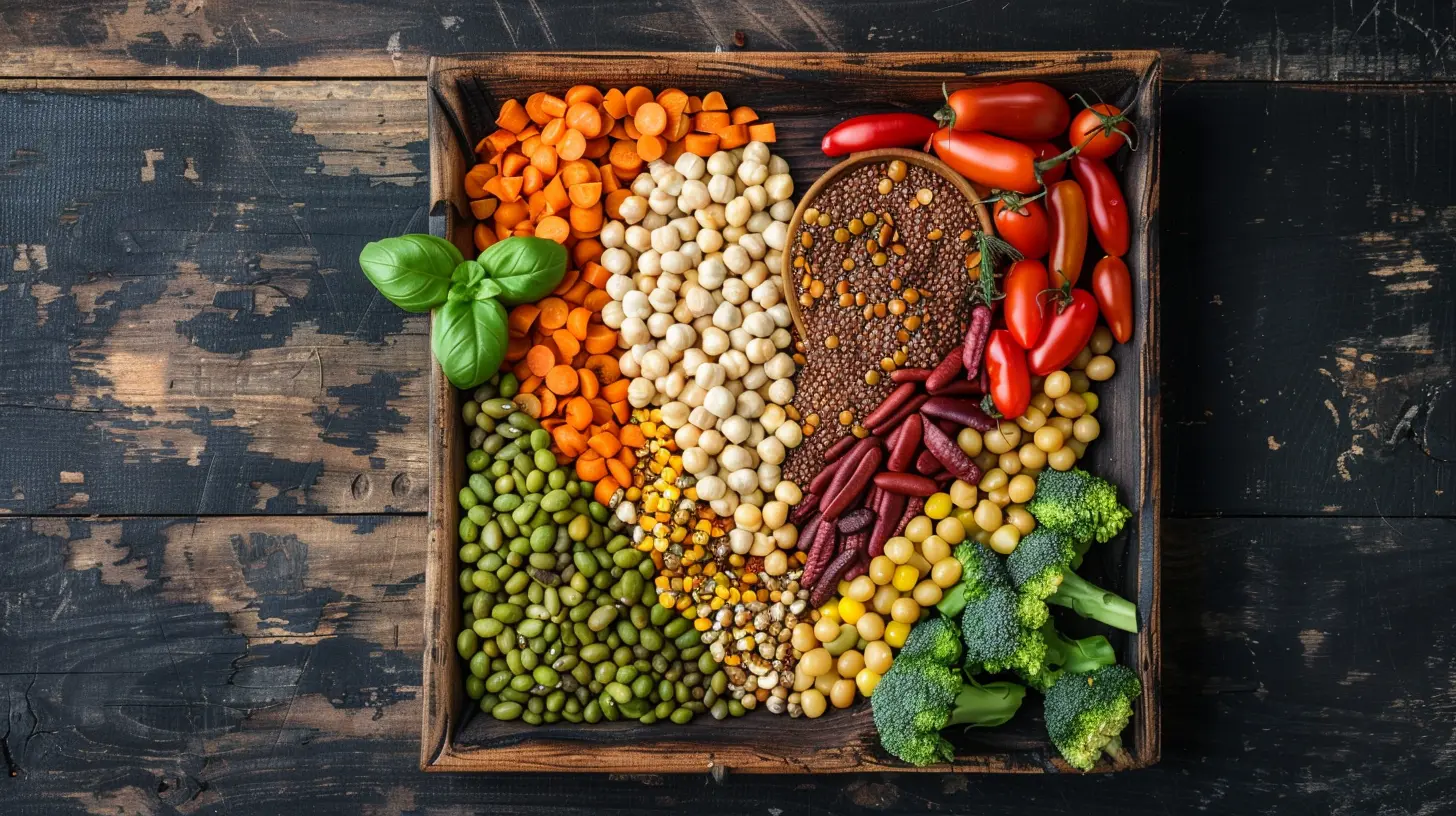21 January 2025
Let’s be honest—there’s nothing more annoying than feeling like your stomach is a balloon about to pop. That pressure, the discomfort, the awkward timing? Yep, bloating can derail your entire day. Whether it’s after a big meal, during that time of the month, or completely out of the blue, bloating can make you feel miserable. But don’t worry—you're not alone, and there are plenty of ways to take control of your gut health and keep that bloated feeling at bay.
In this post, we’ll dive into what causes bloating, simple gut-friendly tweaks you can make, and some tried-and-true tricks to keep your digestive system happy. Ready to deflate that stomach balloon? Let’s jump in!
What Causes Bloating?
Before we dive into the solutions, it’s important to understand why bloating happens in the first place. Think of your gut as a busy factory, working around the clock to break down food, absorb nutrients, and get rid of waste. Sometimes, things in the factory don’t run so smoothly, and that’s when bloating kicks in.Here are some common culprits:
1. Eating Too Quickly: Gulping down your meal in record time introduces extra air into your digestive system. More air = more bloating.
2. Overeating: That second (or third) helping might seem delicious, but it can overwhelm your stomach, causing it to expand uncomfortably.
3. Gassy Foods: Some foods, like beans, broccoli, and sodas, are notorious for producing excess gas during digestion.
4. Food Intolerances: Lactose, gluten, or certain artificial sweeteners can trigger digestive woes, including bloating, if your body struggles to process them.
5. Gut Imbalance: An overgrowth of bad bacteria or not enough of the good guys in your gut can lead to digestive issues.
6. Hormonal Shifts: For many women, bloating is an unwelcome guest during their menstrual cycle due to hormonal changes.
Bloating is essentially your body’s way of saying, “Hey, something’s out of whack here!” So let’s dive into how we can fix it. 
Gut-Friendly Tips to Beat the Bloat
1. Chew Slowly and Mindfully
Think of eating like a marathon, not a sprint. Chewing your food thoroughly is one of the simplest (but underrated) ways to reduce bloating. When you chew slower, you’re breaking down food into smaller pieces, making it easier for your stomach to digest. Plus, you’re less likely to swallow excess air. Need a trick? Count to 20 before swallowing each bite.2. Hydrate (But Be Smart About It)
You’ve heard it a million times, but staying hydrated is key to a healthy gut. Water helps flush out toxins, keeps things moving in your digestive tract, and prevents constipation (a common bloating culprit). But here’s the catch: avoid chugging water during meals, as it can dilute stomach acid and make digestion harder. Instead, sip water consistently throughout the day.3. Avoid Carbonated Drinks
As much as you might love that fizzy soda or sparkling water, those bubbles can wreak havoc on your stomach. The trapped gas in carbonated beverages can transfer directly to your gut, leaving you feeling bloated and burpy. Swap fizzy drinks for herbal teas or plain water infused with lemon or cucumber for a refreshing twist.4. Get Moving After Meals
Ever notice how your body feels great after a leisurely walk? Movement is like a gentle nudge for your digestive system. Going for a 10-15 minute walk after eating can help your stomach process food more efficiently and reduce gas buildup. Think of it as a “thank you” gift to your gut.5. Eat Probiotic-Rich Foods
Probiotics are your gut’s BFFs—they’re live bacteria that support digestion and keep your intestinal tract balanced. Incorporate foods like yogurt, kefir, sauerkraut, kimchi, and kombucha into your diet to populate your gut with good bacteria. If foods aren’t your thing, a high-quality probiotic supplement can also do the trick.6. Watch for Trigger Foods
Start paying attention to how your body reacts to certain foods. Everyone’s gut is different, and what works for one person may not work for another. Common culprits include dairy, gluten, beans, garlic, onions, and high-fat fried foods. Keep a food diary to pinpoint what’s causing your belly to rebel.7. Reduce Stress
Ever notice how bloating tends to strike on your busiest, most stressful days? That’s no coincidence. Stress wreaks havoc on your digestion, slowing everything down. Find ways to relax—whether it’s deep breathing, yoga, meditation, or even just curling up on the couch with your favorite show. A happy mind equals a happy gut.8. Try Peppermint Tea
This one’s an oldie but a goodie. Peppermint tea has been used for centuries to soothe an upset stomach. It works by relaxing the muscles in your digestive tract, easing gas and bloating. Bonus: it tastes amazing and doubles as a calming, caffeine-free drink.
Tricks for Immediate Bloat Relief
Sometimes you need a quick fix—like when you’re rocking a fitted dress or have an important meeting later. Here are a few hacks to deflate that bloated tummy in no time:1. Apply Heat: A warm compress or heating pad on your stomach can help relax the muscles in your gut and reduce bloating.
2. Massage Your Stomach: Use gentle, circular motions starting from your lower right abdomen, working your way up and around. This mimics the path your intestines take during digestion.
3. Take Activated Charcoal: Some people swear by activated charcoal tablets for absorbing excess gas and toxins in the gut (just consult your doctor first).
4. Use Over-the-Counter Enzyme Supplements: If lactose or beans set you off, enzymes like lactase or alpha-galactosidase can help break down those hard-to-digest substances. 
Building a Bloat-Free Lifestyle
While quick tips are great, long-term changes are where the real magic happens. By building habits that support your gut health on a daily basis, you’ll see a significant reduction in bloating over time.Consider incorporating these lifestyle changes:
- Eat Smaller, More Frequent Meals: Instead of three gigantic meals, try eating 4-5 smaller ones throughout the day. It’s easier on your stomach.
- Stay Active: Regular exercise keeps your digestive system humming along smoothly. Even something as simple as yoga or stretching can make a difference.
- Limit Processed Foods: Packaged junk is often loaded with sodium, artificial sweeteners, and preservatives—all of which can contribute to bloating. Focus on fresh, whole foods whenever possible.
- Optimize Fiber Intake: Fiber is amazing for digestion, but too much too quickly can lead to gas and bloating. Gradually increase your fiber intake and pair it with plenty of water.
When to Seek Help
Sometimes, bloating can be more than just a temporary annoyance—it can be a sign of a bigger issue. If your bloating is chronic, severe, or accompanied by symptoms like weight loss, blood in your stool, or intense abdominal pain, it’s time to consult a doctor. Conditions like IBS, celiac disease, or food allergies might be at play.Final Thoughts
Bloating doesn’t have to control your life. By understanding your triggers and incorporating gut-friendly tips, you can take charge of your digestive health and say goodbye to that uncomfortable, puffy feeling. Remember, your gut is like a garden—it needs the right care and attention to flourish. A little patience and effort go a long way!So, the next time bloating tries to ruin your vibe, you’ll know exactly what to do. Cheers to a happier, healthier gut!










Dulce McKittrick
Great tips! Incorporating probiotics and staying hydrated truly helps reduce bloating effectively.
April 6, 2025 at 3:55 AM